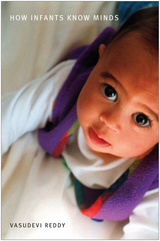
When does our acknowledgment of the social contract really begin? When do young children first display an understanding of their social world? When and why do they begin to grasp that other people have feelings and thoughts like their own, yet different? In this pathbreaking work Judy Dunn explores several aspects of the early process of social discovery: children's recognition of the feelings of others, their ability to interpret and anticipate the behavior and relationships of others, and their comprehension of the prohibitions and accepted practices of their world.
Dunn's work brings into focus an apparent paradox in our current view of the very young child's social understanding. Whereas research on infancy reveals that babies are born with a predisposition to learn about other people, and appear sensitive to the emotions and behavior of others, experimental studies suggest that children of three, four, and five years of age have difficulty gauging the feelings, intentions, and perceptions of others. Why should this social intelligence--which might be expected to be high on the developmental agenda--proceed so slowly? Is the social understanding of young children really so limited? Dunn pursues answers to these questions through close observation of children in their homes, in the complex social world of the family; her findings suggest a sophistication that has not yet been appreciated or documented.
The Beginnings of Social Understanding draws upon observations and analyses from three longitudinal studies of children during the transition from infancy to childhood, examining children's disputes, jokes, play, their questions and narratives about others. The book demonstrates children's increasing subtlety as members of a cultural world, and argues that emotional relationships and family discourse play crucial roles in the development of this understanding. Dunn breaks through traditional notions of child development as she sets forth a refreshingly original perspective from which to view the social potential of children.

Most psychologists claim that we begin to develop a “theory of mind”—some basic ideas about other people’s minds—at age two or three, by inference, deduction, and logical reasoning.
But does this mean that small babies are unaware of minds? That they see other people simply as another (rather dynamic and noisy) kind of object? This is a common view in developmental psychology. Yet, as this book explains, there is compelling evidence that babies in the first year of life can tease, pretend, feel self-conscious, and joke with people. Using observations from infants’ everyday interactions with their families, Vasudevi Reddy argues that such early emotional engagements show infants’ growing awareness of other people’s attention, expectations, and intentions.
Reddy deals with the persistent problem of “other minds” by proposing a “second-person” solution: we know other minds if we can respond to them. And we respond most richly in engagement with them. She challenges psychology’s traditional “detached” stance toward understanding people, arguing that the most fundamental way of knowing minds—both for babies and for adults—is through engagement with them. According to this argument the starting point for understanding other minds is not isolation and ignorance but emotional relation.
READERS
Browse our collection.
PUBLISHERS
See BiblioVault's publisher services.
STUDENT SERVICES
Files for college accessibility offices.
UChicago Accessibility Resources
home | accessibility | search | about | contact us
BiblioVault ® 2001 - 2024
The University of Chicago Press









